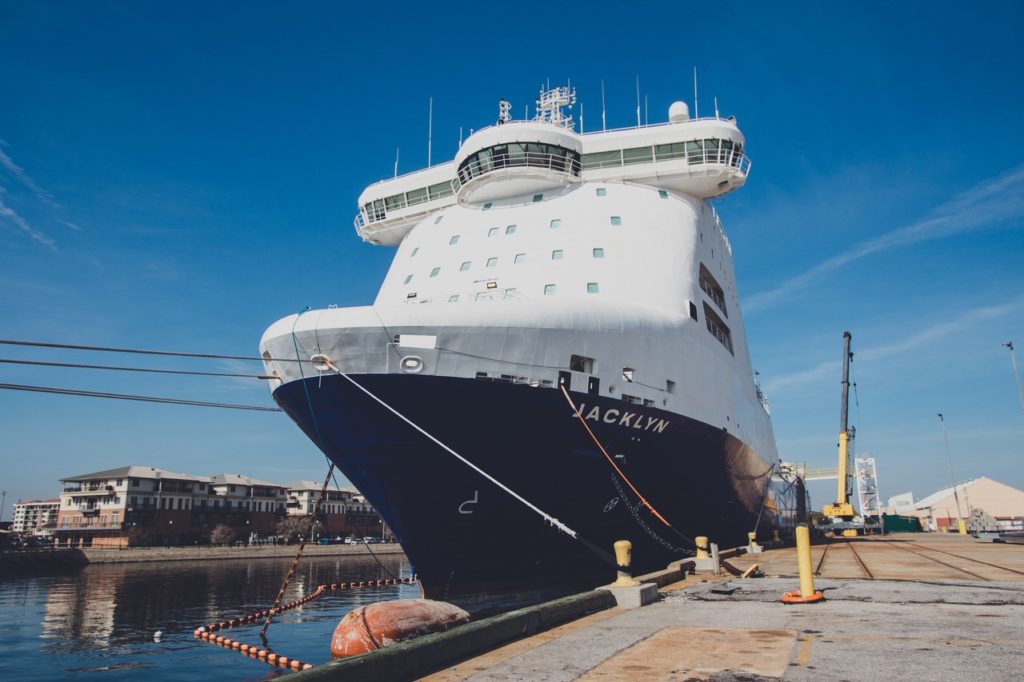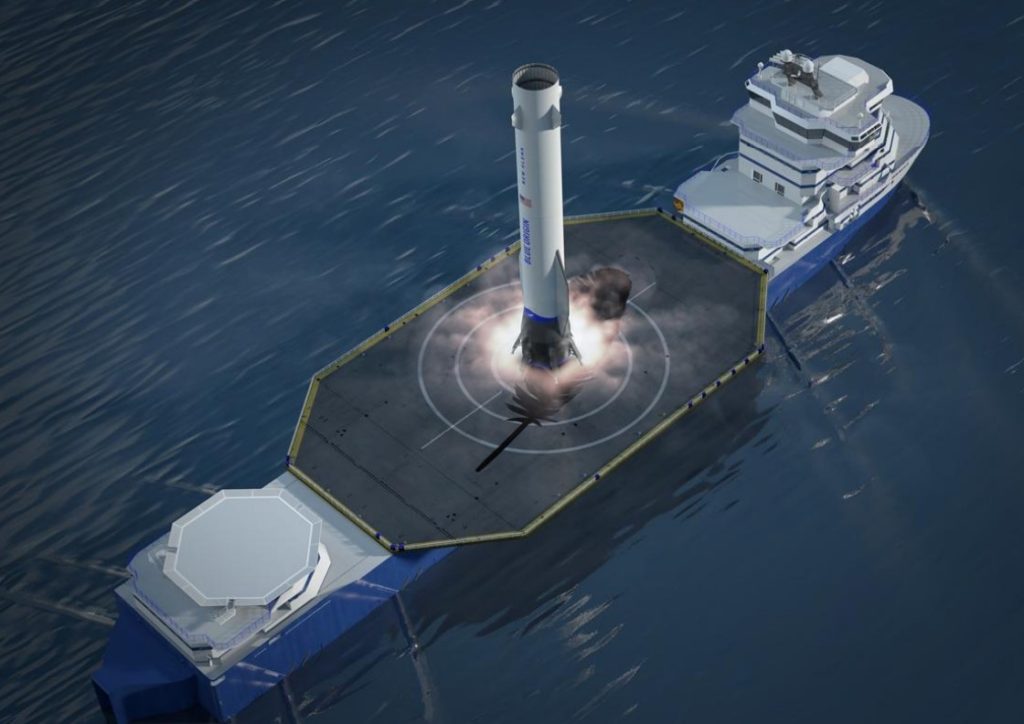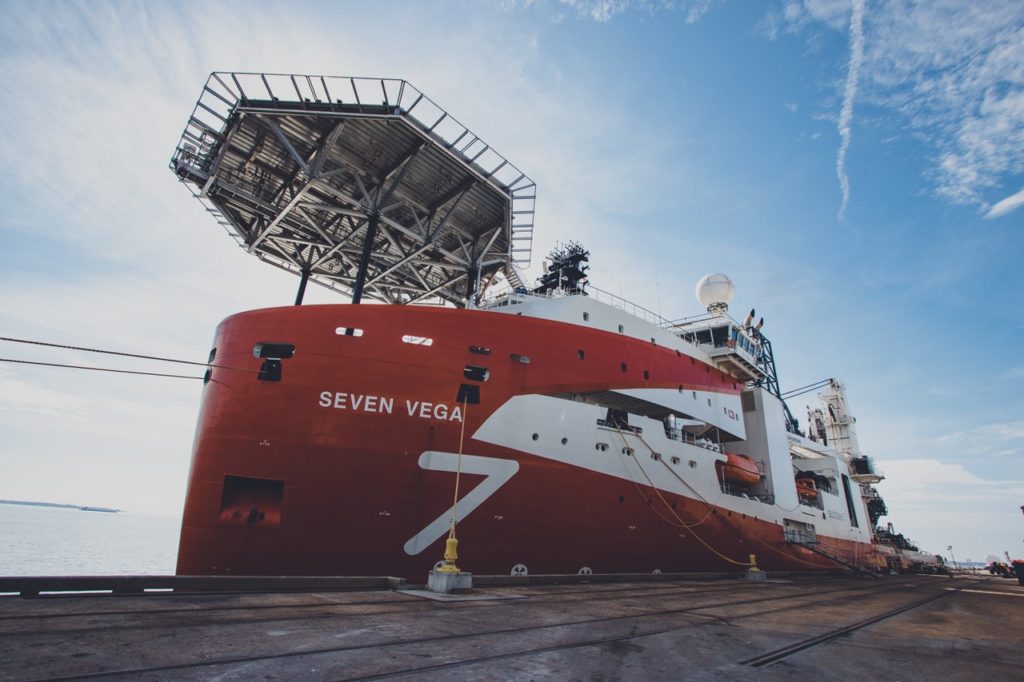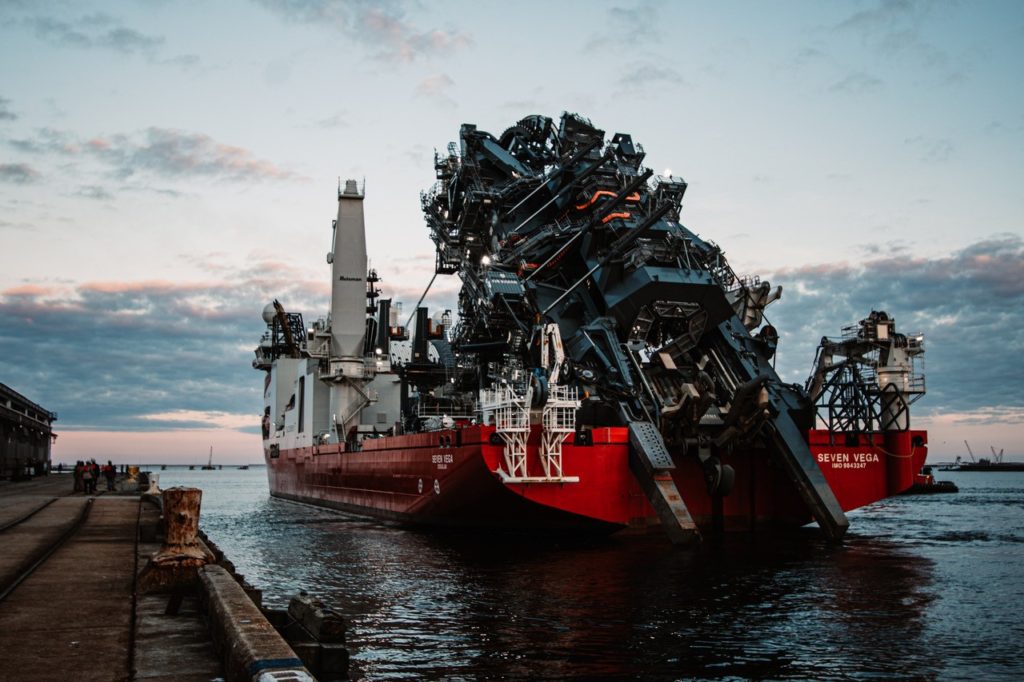News & Updates
Port of Pensacola innovates for the future
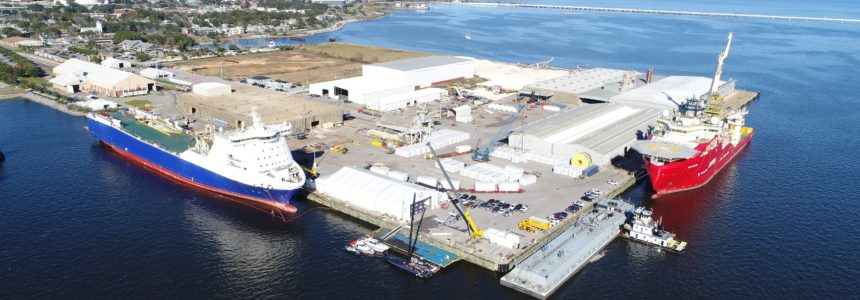
The Port of Pensacola has provided diverse business opportunities and positive economic impact to Escambia County – and the state of Florida – for more than 200 years. Recently, the port has announced multiple innovations for 21st Century transformation, including Blue Economy projects, Green Marine environmental certification and expanded activities from Marine Maintenance Repair and Overhaul (MRO) to the next frontier – commercial space travel.
Blue Economy & Green Marine
In December, the Port of Pensacola announced its designation as a participant in the rigorous Green Marine program, the largest voluntary environmental marine certification in North America.
“Joining a key stewardship program such as Green Marine is consistent with the directed goals of sustainable development identified in the Port’s renewed vision plan” said Port Director Amy S. Miller. The vision plan, adopted in 2019, seeks to establish a hybrid port, balancing clean cargo seaport trades with new investment geared to creative knowledge and expertise.
Green Marine offers a step-by-step roadmap for port authorities, terminal operators, shipping lines and shipyard managers to voluntarily and measurably reduce environmental footprints. The comprehensive program addresses key environmental issues, including lowering air emissions, minimizing community impacts, and demonstrating environmental leadership.
“We’re so pleased to welcome the Port of Pensacola into the Green Marine program where it can benchmark its progress along with more than 50 other U.S. and Canadian ports,” said David Bolduc, Green Marine’s executive director. “The Port of Pensacola is already conveying its genuine commitment to sustainability through its vision plan inclusive of science, technology, education, research, and blue economy.”
One of the projects on the port that contribute to its Blue Economy goals is aquaculture through oyster farming with port tenant, Pensacola Bay Oysters. Not only do the oysters clean and filter the bay and estuary water, but the oyster spat is then used for aquaculture operations across the Gulf Coast, providing income and job opportunities to local residents.
Transformation in Action
Although a hub of traditional port activities, the Port of Pensacola is also expanding into more transformational projects, including working on the next frontier — space. One of those projects is a cargo vessel owned by Blue Origin, the space exploration company owned by entrepreneur Jeff Bezos, founder of Amazon.
The Port of Pensacola is home to the 630-foot vessel as it undergoes conversion to transform the ship into a rocket landing platform vessel as soon as this year. The ship, which Bezos recently announced was named after his mother, Jacklyn, will be the landing site for the Blue Origin rocket ship New Glenn, after it returns from space.
In addition, the port continues to expand its Marine MRO activities, with one bright spot noticeable to local residents. The bright red, brand new, 475-foot Seven Vega, owned by engineering company Subsea 7, is in Pensacola for MRO activities.
Port Director Amy Miller said Seven Vega was designed to lay pipe on the ocean floor in a “J” formation as opposed to the traditional S-lay. Operationally, pipe from the center of the ship is spooled through the giant steel contraption on the rear — known as the J-lay tower — which lays the pipe vertically in a “J” shape onto the ocean floor.
“Seven Vega is more than a state-of-the-art vessel with high specification and enabling technologies,” said Phil Simons, executive vice president of projects and operations with Subsea 7, via the company’s website. “The vessel incorporates decades of knowledge and experience, resulting in a cutting-edge pipelay vessel focused on crew safety, operational efficiency and flexibility. We are grateful to the build team and our suppliers for their contribution in delivering this exceptional vessel and we look forward to commencing offshore operations in the coming weeks.”
Looking Back – 2020 Milestones
In spite of the challenges 2020 offered, here are a few wins the Port celebrated throughout the past year:
- Port Revenues increased 13% — largest increase in recent history
- Wind Energy components, and assembled wind energy turbines, dominated port cargo handling with total tonnage in the sector up over 110% over 2019.
- Port welcomed two new diverse tenants and extended the lease with long term tenant CEMEX – these successes further diversify port business activities long term.
- The port operations were back online one day following Hurricane Sally and the port served as a primary salvage location for barge recovery operations following the storm. The port also aided the local community by serving as one of two city-wide hurricane debris reduction sites – the port’s downtown location expedited the clean-up effort.

